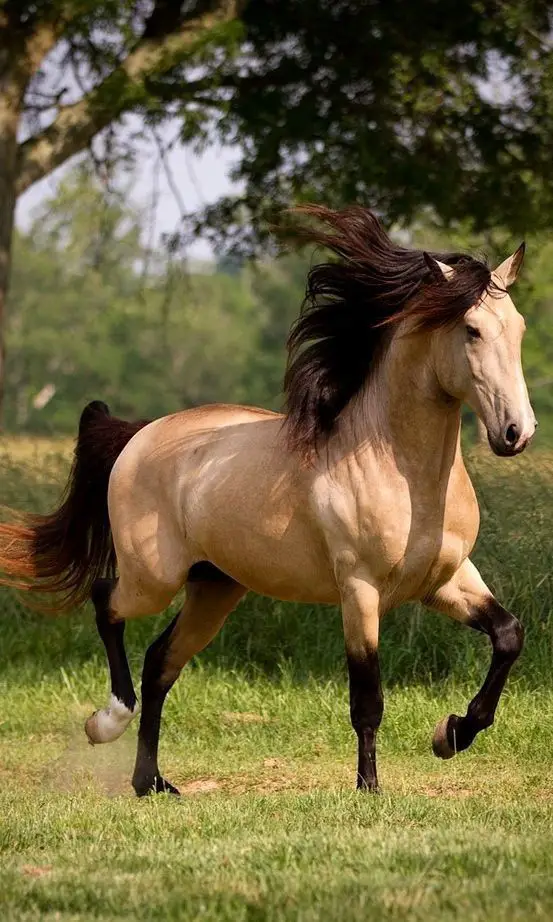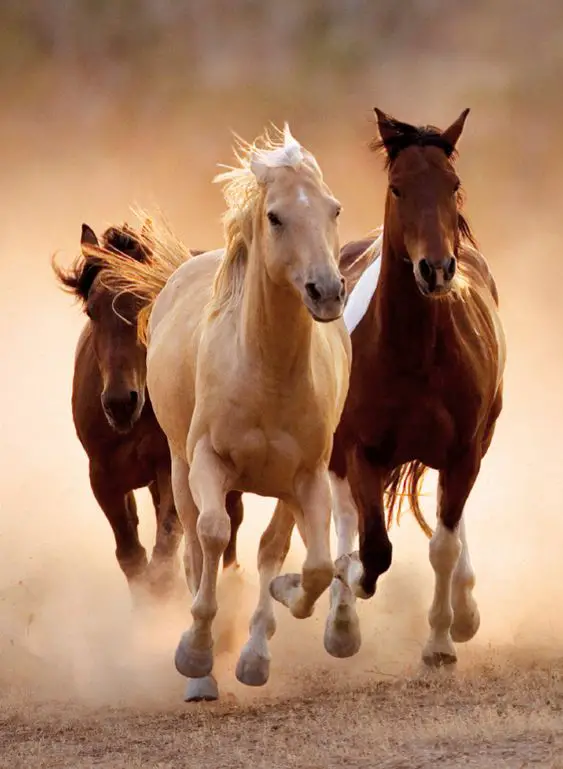Any horse breeder is interested in how long they will live. It is from this that he plans to actively use them for his own purposes.
The average life span of these animals at home is considered to be from 25 to 30 years, but not all individuals reach this age.
How long horses live depends on the quality of the conditions they have created. If they are properly fed, well cared for, and properly loaded, they will reach venerable age. Horses’ lifespan depends on a whole range of factors.
Factors Affecting Longevity

In addition to the correct diet and good conditions of maintenance and care already listed, how long horses live is influenced by:
- wild are animals or pets;
- horse breeds;
- the way they are used (breeding, work, or sport).
Conditions of Detention and Care
First of all, the stable must be clean and dry. Horses cannot stand humid, musty air and often get sick in such cases. In addition, the limbs and joints of these large animals are highly sensitive. The slightest oversight – and they begin to hurt, swell, all sorts of inflammation appear.
The horse’s daily routine is very important. Living things get used to certain feeding times. In addition, you need to properly alternate physical activity and rest, as well as regularly walk them in the fresh air. All these are components of a long and comfortable life of a pet, regardless of its age.
Food Ration
Their diet has a huge impact on the physical health, and, therefore, on the longevity of these animals.
It should be not only nutritious but also balanced, that is, it should contain foods that are sources of vitamins and minerals necessary for the body of horses. Usually, a properly selected diet consists of:
- grain crops (oats, barley);
- high-quality hay;
- in summer – green forage (freshly cut and slightly dried grass);
- compound feed;
- vitamin and mineral supplements.
If animals are kept on pastures, then they eat up to 25 kilograms of various plant foods per day. If they are kept in a stable, the same amount must be provided to them from the outside.
It is important to ensure constant access to clean and fresh water. Horses drink 50 liters of water a day. The older the horse, the less roughage should be in its diet, since there is a high risk of digestive upset and stomach cramps.
The Lifespan of Wild Horses

Horses rarely reach old age in their natural habitat. This is due to the fact that they are constantly fighting for their existence not only with predators but also with weather caprices.
Wild horses are in no way protected from temperature fluctuations, they are forced to endure strong heat and bitter frosts, and also constantly find food and water for themselves. In winter, you generally have to get food from under the thick snow cover. Predators also contribute to the mortality of wild horses.
Another reason for the early mortality of wild horses is their susceptibility to various diseases of a viral, infectious, and colds nature, as well as to infection with helminths and other parasites. In such cases, the youngest and weakened animals die first.
The lifespan of horses in the wild depends on the climate of their habitat. It has been noticed that in conditions of warm temperatures and a rich natural food base, these animals live on average 7-10 years longer than horses living in harsh hot, or cold areas with scarce food. An interesting fact is that the habitat does not affect the incidence in any way. It is the same in both comfortable and harsh environments.
A wild horse like the mustang lives on average for ten years and rarely crosses the fifteen-year mark.
How Long Do Domestic Horses Live?
Horses have much higher chances of living to old age here. This can be explained simply – a person takes care of their nutrition, builds shelters for them from bad weather, and provides treatment for diseases. The average life span of a domestic horse is from 20 to 25 years (with the proper level of care and maintenance).
However, the nature of the animal’s economic use also strongly affects longevity.
Breeding stallions and mares live longer than the main herd, as they receive special attention from the breeder. Purebred pedigree horses often live up to 30 years. It depends on the value of each individual specimen for breeding.
Sports horses live shorter lives since their bodies are constantly exposed to increased physical exertion, not only during competitions but also during training. In addition, they are at increased risk of injury, which can significantly shorten their lives.
Sports horses often die from ruptured lungs, cardiac arrest, and have an increased risk of stomach colic (as they often have iron in their mouths). Permanent micro-injuries cause chronic pain, and more serious ones can lead to disability. Often, sporting horses sporting animals are culled in their prime.
The most successful animals that have achieved high sporting achievements most often get a chance for a calm old age due to their high breeding value and respect for merit. The average specimens have been exploited throughout their lives as training animals.
The average lifespan of a sports horse is 18 – 20 years.
If an animal is overloaded in pursuit of the result, it may not live even ten, and if you approach the matter competently, alternating loads and rest, then such a horse can live up to 25 years.
Long-lived Breeds
As mentioned earlier, valuable breeding horses usually live the longest, so ancient purebred breeds, such as the Arabian and Akhal-Teke, often live up to 35 years.
Also, its temperament affects the life of the animal.
Calm and balanced ponies often live up to 35 – 38 years old, about the same can live harness horses (if they are used correctly in work).
Centenarians – Record Holders
At this point in time, the horse named Old Billy, who lived in England at the turn of the 18-19th centuries, lived the longest. This one lived for 62 years, dragging loaded barges along the river until the last.
The pony lived in France for 52 years. Among the stallions of the sports direction, the Australian horse Duke Tango (42 years old) lived the longest.
One mare, whose nickname has not survived, not only lived to be 46 years old but also bore offspring at 42 years old.

